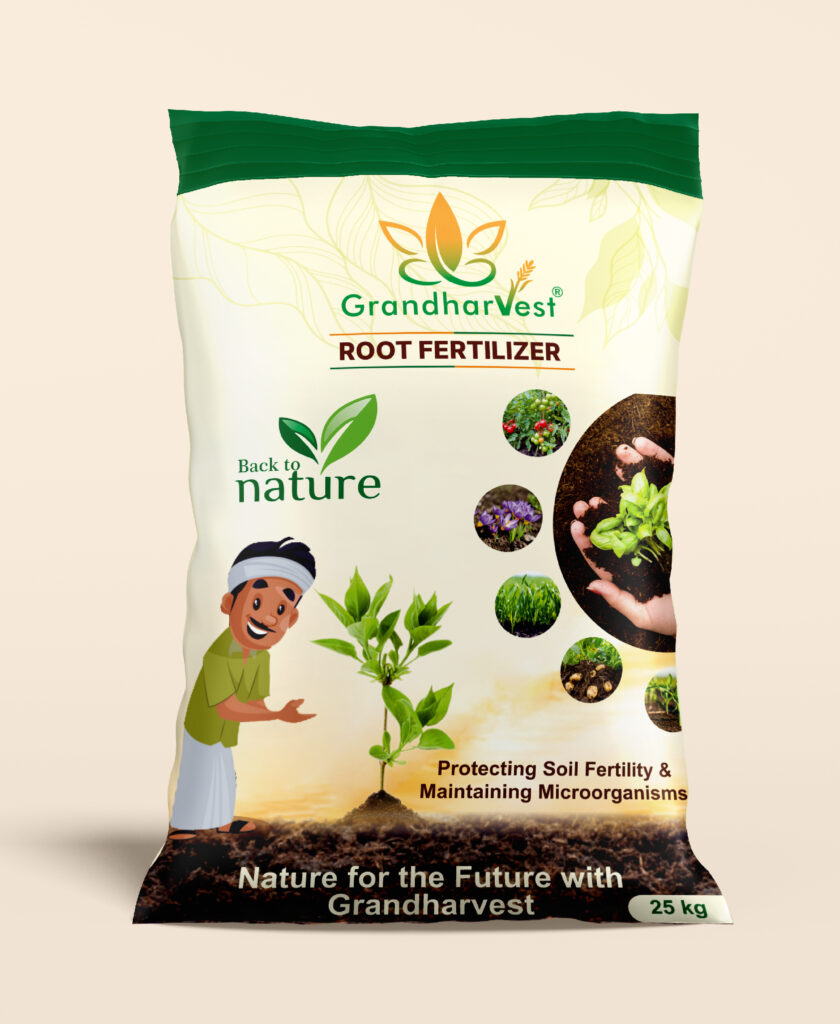Soils rarely have sufficient nutrients for crops to reach their potential yield. Chemical fertilizers are being added to improve crop quality and meet the global food demand.
Agricultural practices around the world are dependent upon the extensive use of chemical fertilizers and pesticides. The use of chemical fertilizers may lead to a decline in soil fertility and a number of environmental problems. Chemical fertilizers can cause soil acidity and crust, which lowers the amount of humus and organic matter in the soil. Chemical fertilizers change biochemical properties, including organic carbon content, nitrogen content, pH, moisture, altered enzymatic activities and even lead to the release of greenhouse gases.
While we cannot fully prevent the adverse effects of chemical fertilizers at an instant in time, we can definitely reduce the impact by minimizing their use and encouraging the use of organic fertilizers.
Organic farming has many benefits for human well-being: protecting the environment (soil, water, and air); rebuilding soil fertility through improving its physical, chemical, and biological characteristics; and improving the quality of produced crops.
Organic fertilizers are coordinated with the natural requirements for environmental sustainability and continuity. Their biodegradable nature continues the nutrient cycle and supports natural bio-chemical activities.

Understanding the nutrient variability and release pattern of organic fertilizers is crucial to supplying plants with sufficient nutrients to achieve optimum productivity while also rebuilding soil fertility and ensuring protection of environmental and natural resources.
Organic fertilizers not only improve and condition the soil but also enhance the yield and health of the plants.
The mineral and nutrient breakdown of organic fertilizers takes time, and more than half remain on the soil after the first year, slowly breaking down to feed and nourish the soil.
Thus, organic fertilizers ensure that the soil stays fertile for many years.
We have developed an organic product, Grandharvest Organic Root Fertilizer, to be employed for organic farming, which has balanced nutrients for crops and enhances soil fertility and environmental sustainability.
With the use of Grandharvest Organic Root Fertilizer, the soil is constantly conditioned and rejuvenated, thereby enhancing soil texture, drainage and aeration. This root fertilizer supplies plants with sufficient nutrients to achieve optimum productivity while also rebuilding soil fertility and ensuring protection of environmental and natural resources.
The Grandharvest Organic Root Fertilizer not only improves and conditions the soil but also enhances the yield and health of the plants. It can be used for almost all types of crops.
Why Choose Grandharvest Organic Root Fertilizer
Organic Root Fertilizer for enhancement of soil fertility and soil organic matter.
Benefits of Grandharvest Organic Root Fertilizer
● Grandharvest Organic Root Fertilizer is a 100% organic fertilizer.
● It has homogeneous nutritional values. Nutrients for soil, soil life and plants.
● Enhances consistent uptake of nutrients.
● Improvements in soil structure and enhancement of water retention, hence reducing the water consumption by 15 to 20 % have been observed during field trials.
● Improves buffering capacity against fluctuations in pH levels.
● Enhances moisture-absorbing capacity.
● Grandharvest Organic Root Fertilizer is ecofriendly, farmer friendly and the most economical organic root fertilizer.
